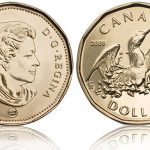The pound trimmed daily gains to trade little changed against the US dollar, after an official report showed UK consumer inflation expectations declined in the three months through December, while at the same time investors awaited the release of US payrolls data later in the day, which may show employers added more workers to payrolls last month.
GBP/USD hit a session high at 1.6772 at 09:30 GMT, after which the pair trimmed daily gains to trade little changed at 1.6746 at 10:44 GMT, adding 0.04% on a daily basis. Support was likely to be received at March 6th low, 1.6686, while resistance was to be met at March 6th high, 1.6778.
Demand for the sterling was pressured after Bank of England published the results of its quarterly survey among 2 000 consumers in the UK, which revealed that consumer inflation expectations for the next one year fell to 2.8% in the fourth quarter from 3.6% in the preceding quarter.
Yesterday, Bank of England’s Monetary Policy Committee (MPC) reported that it will keep its benchmark interest rate unchanged at a record low 0.5%, where it has been since March 2009. The MPC also decided to leave its quantitative easing program of monthly asset purchases unchanged at 375 billion pounds (approximately 627 billion US dollars). Central bank’s officials also announced that they would reinvest 8.1 billion pounds of funds related to the plan starting March 10.
“There’s very few expectations for the meeting,” Michael Sneyd, a currency strategist at BNP Paribas SA in London, commented in a Bloomberg interview yesterday, before BoE’s report. “We still like sterling and are currently looking for opportunities to put long positions back on. The data flow has been very solid and that should keep the pound supported.”
In its quarterly inflation report last month, Bank of England revised its forward guidance, replacing the 7% unemployment threshold with a range of economic indicators, including spare capacity and said it intended to maintain the stock of purchased assets at least until the first increase in its benchmark rate.
The central bank also raised its forecast for the UK economic growth in 2014 to 3.4% from 2.8% projected in November and predicted the first increase of interest rates will come in April 2015. Bank of England projected inflation of 1.9% in the next three years, below the central bank target of 2%.
BoE said the unemployment rate will probably fall below 7% in the first quarter of this year, but at the same time underscored there was “scope to absorb spare capacity further before raising bank rate” from the current record-low 0.5%. BoE estimated an output gap between 1% and 1.5% of UK gross domestic product.
The sterling has advanced 13% in the past year, being the best performer of 10-developed-nation currencies tracked by Bloomberg Correlation-Weighted Indexes, while the US dollar slipped 0.5%.
Meanwhile, greenback’s demand was supported yesterday, after a report by the US Department of Labor revealed the number of initial jobless claims for the week ended March 1st fell to 323 000 from 349 000 a week ago. Analysts had expected that the number of people filing for unemployment benefits will decline less to 336 000.
Data due to be released later in the day may show US payrolls rose by 146 000 in February, after increasing 113 000 in the previous month. In December, non-farm payrolls increased mere 74 000, the least since May 2012. At the same tome, The rate of unemployment in the country is expected to remain steady at 6.6%, or the lowest level since October 2008. The official figures are to be released at 13:30 GMT.
Elsewhere, having reached a session high at 1.3882 at 09:13 GMT, EUR/USD consolidated at 1.3878, adding 0.12% for the day. Support was likely to be received at March 6th low. 1.3722, while resistance was to be encountered at December 27th high, 1.3894.





